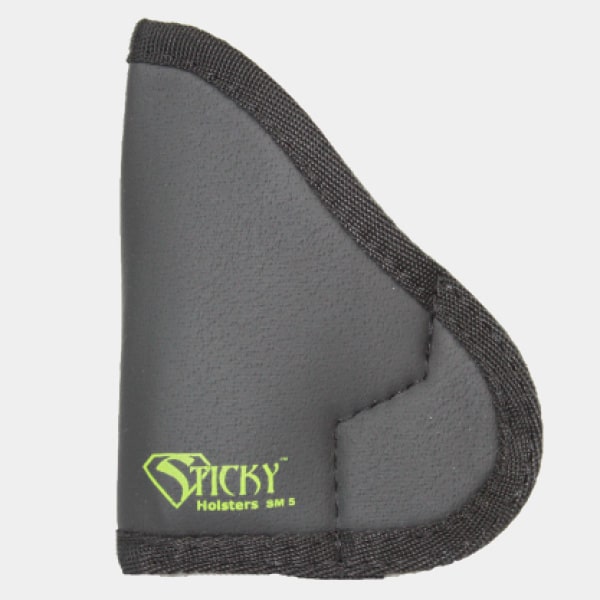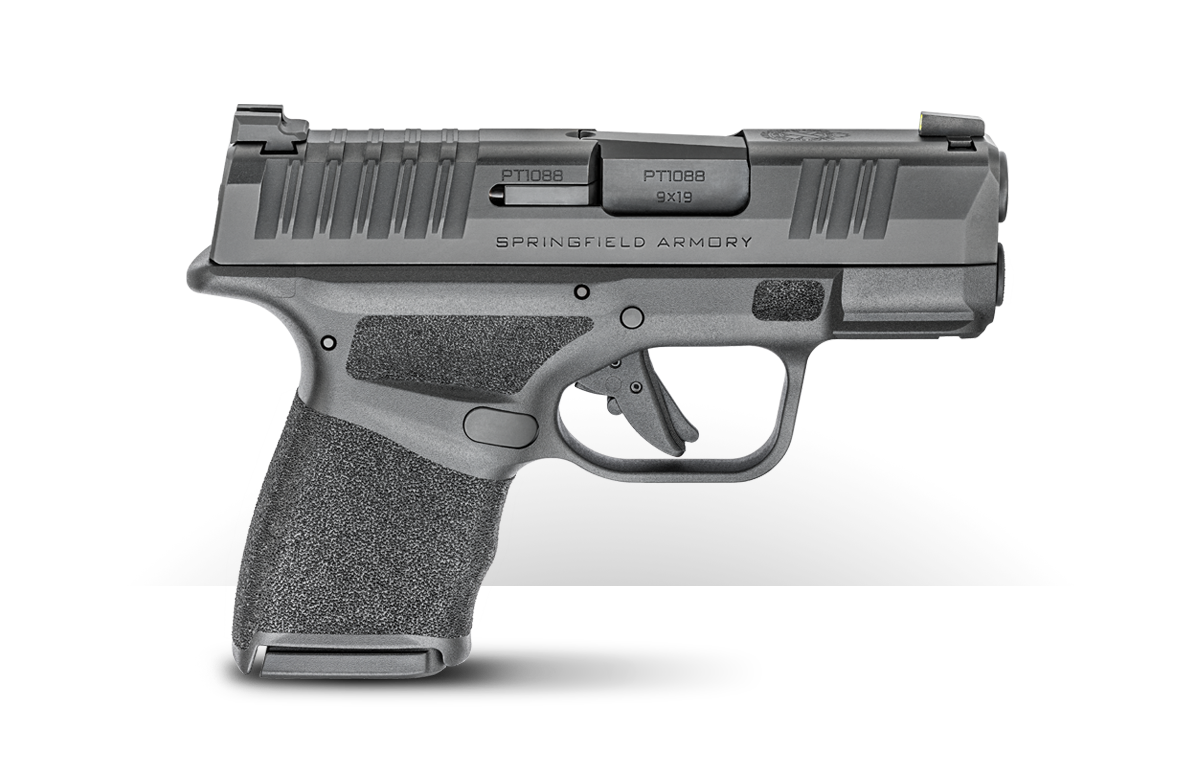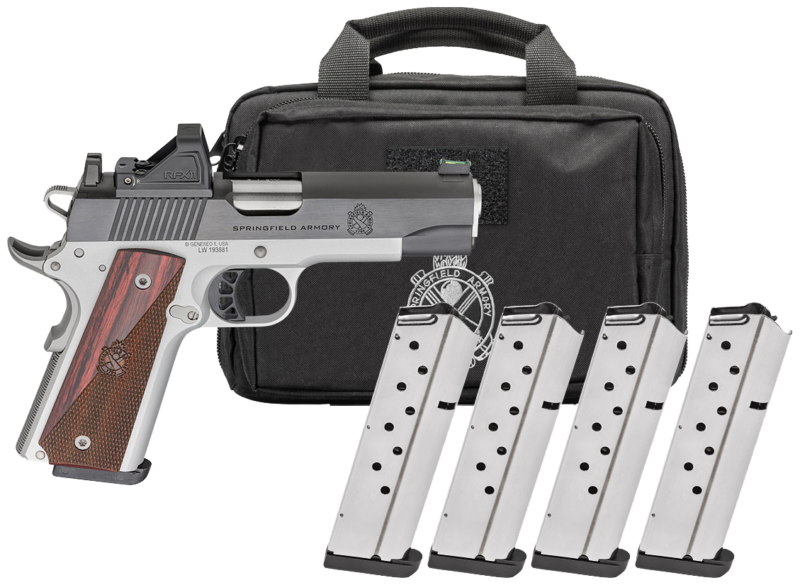Ins and Outs of Pocket Carry
March 20th, 2024
6 minute read
People have carried guns in their pockets as long as there have been pockets big enough for them. Abraham Lincoln’s 1849 Pocket Model .31 caliber percussion revolver was on display at the NRA Museum in Fairfax, Virginia last time I visited.
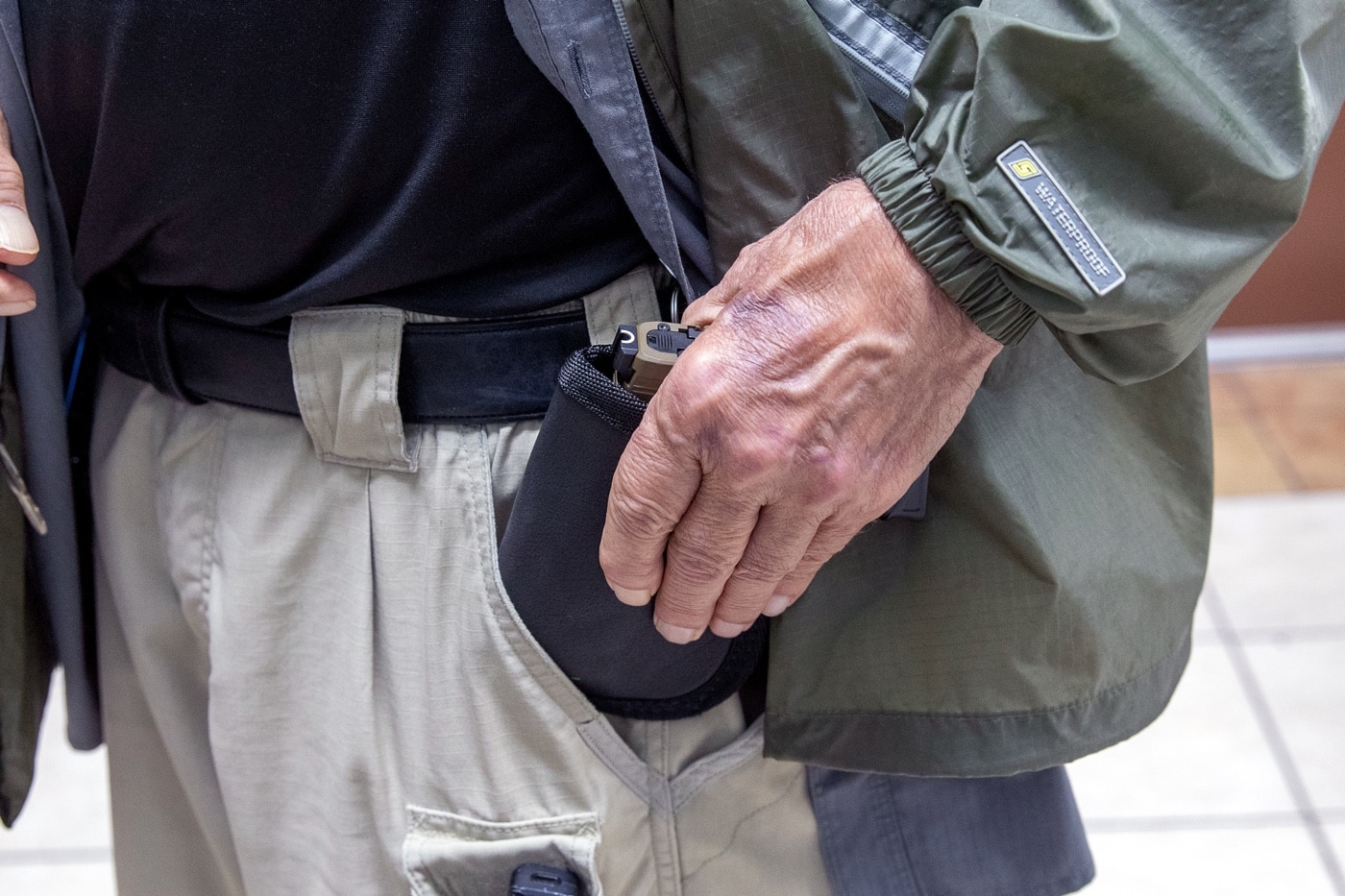
Today, with the growing concealed carry movement in the United States, pocket carry is hugely popular. Obviously, the practice requires small handguns and fairly capacious pockets. It also requires, as any professional in the field will tell you, a pocket holster and a pocket dedicated to the holstered pistol and nothing else!
You don’t want any object in the pocket to block your draw, or interdict the trigger of the loaded pistol therein. This is, of course, one drawback to pocket carry: you’ve lost that one pocket for carrying anything else you might need in the course of the day.
The True Value
Understand from the beginning that pocket draw has great strengths and great weaknesses. The weakness is that if you start with your hands clear, it’s slow. But one strength is that if you see danger coming and get your hand into that pocket and onto the concealed gun beforehand, it’s one of the fastest draws there is. The trick of course is getting your hand on the gun before the fight starts. Another downside is, you’ll be fighting with a smaller gun than you would probably have wished for, but that’s the price of convenience of pocket carry with no concealing garment required.
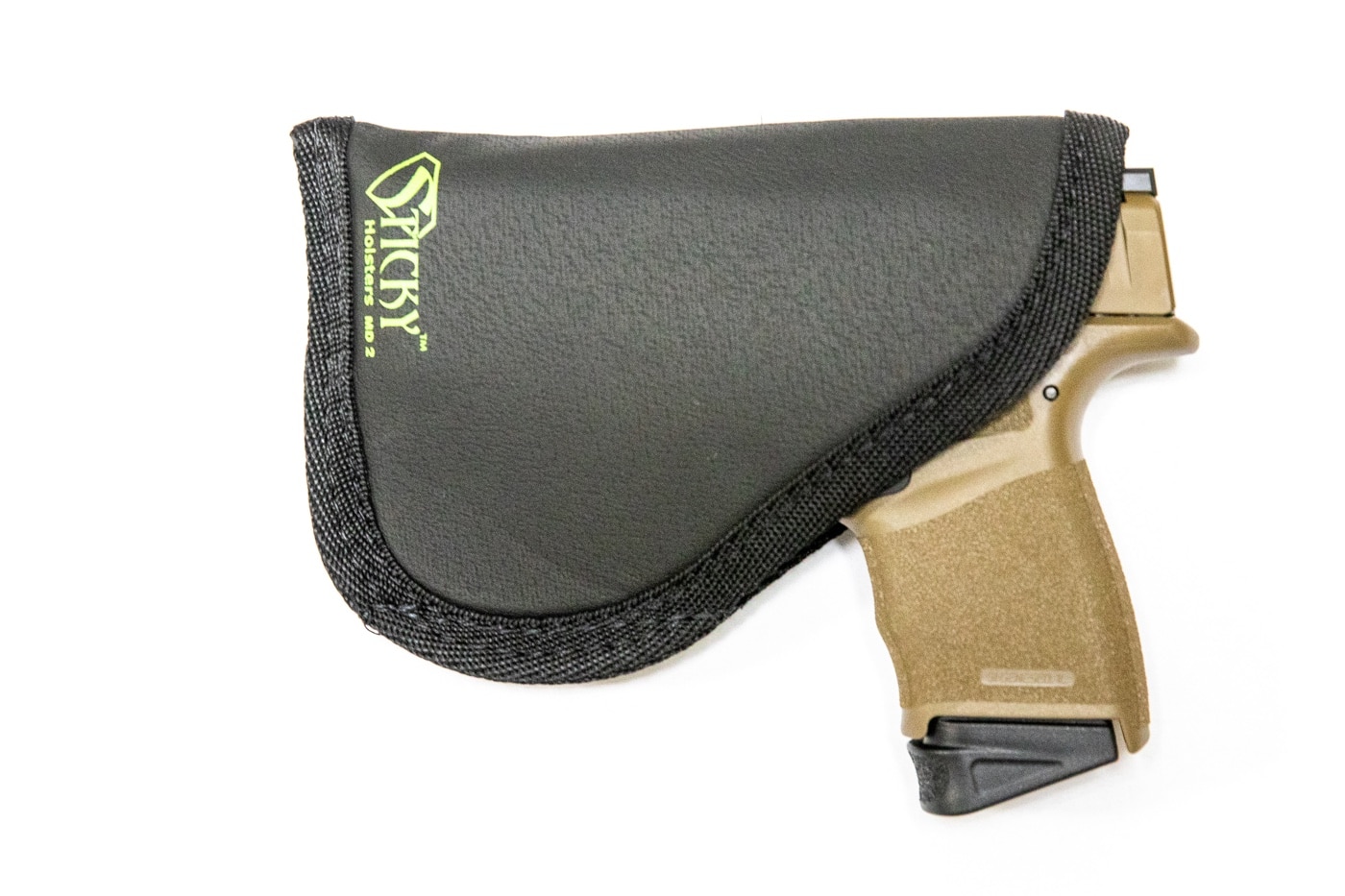
If you’re seated, your pants pockets will be drawn taut and, particularly when in an automobile with a seatbelt fastened, it’s going to be somewhere between slow and impossible to get the gun out. Rocking your upper body to the side opposite where the gun is will help, but it still won’t be conducive to winning a quick-draw contest. If down on your back supine, assuming you have a good pocket holster that keeps the gun in a constant orientation, it can be pretty fast.
Many years ago at the annual conference of WSLEFIA, the Washington State Law Enforcement Firearms Instructors Association, I tied with Marty Hayes with perfect scores for winning the back-up gun match that started with us all down on our backs and our feet toward the targets. We had to draw from where we usually carried our backups, and hands clear of weapons. My snub-nosed .38 cleared quite nicely out of its left-side Safariland pocket holster. My thanks to holster designer Bill Rogers.
More on point, in 2023 a friend of mine on a major Midwestern PD saved his life when a humongous bad guy got him down on his back, managed to rip his duty pistol out of its security holster, and fired a shot that wounded my friend in the leg. The cop got a snubby .38 revolver out of his weak side Mika pocket holster and put four 135-gr. +P Gold Dots into the attacker before the would-be cop-killer could shoot him again. My friend survived. His attacker did not.
So, let’s look at some of the “ins and outs” of pocket holsters and if it’s a good fit for your needs.
The “INs”
Any professional will tell you to insert the handgun in the pocket holster first, and then put the whole package into the pocket. The pocket is a small, enclosed space, and it’s remotely possible (which means: still possible) that inserting the gun into a holster already in the pocket could cause the straight trigger finger to be unintentionally forced into the holster along with the trigger, which could result in an unintended shot going right down through your leg.
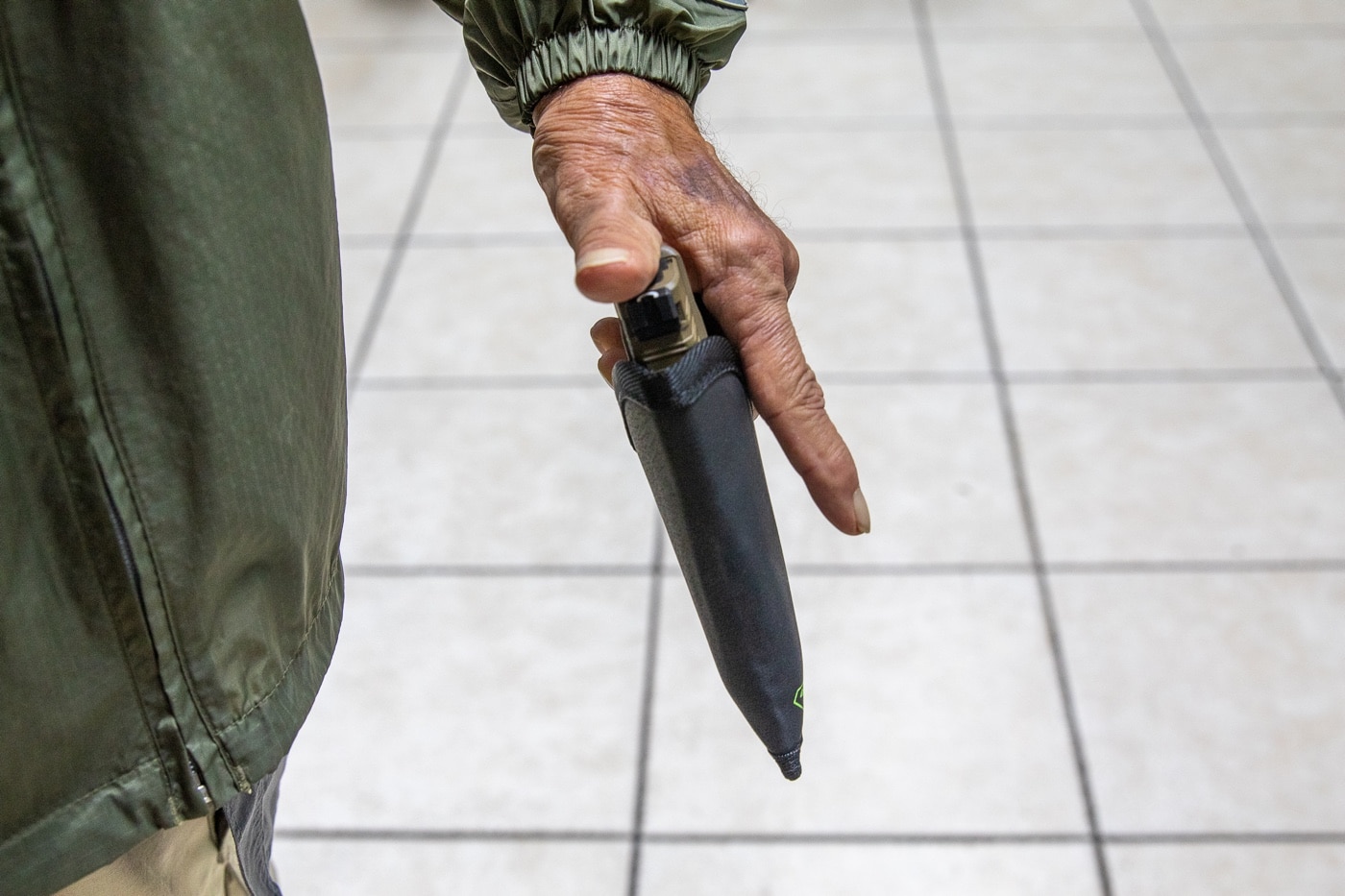
High Standard used to make a double action over/under derringer in .22 Long Rifle and .22 Magnum that was wonderfully flat, light, and comfortable to carry, but it came with a cutaway trigger guard and there were cases of people who shot themselves when they put the gun into a holster already in the pocket, by feel. They got a fraction of an inch off and their holstering movement put the “un-guarded” trigger against the edge of the holster and…BANG!
The “OUTs”
Different pants have different pocket cuts. Some pocket holsters, both fitted leather and particularly fitted Kydex, have a tendency to come out with the gun when you draw, and that will only save you if it makes your opponent laugh so hard he forgets to shoot you.
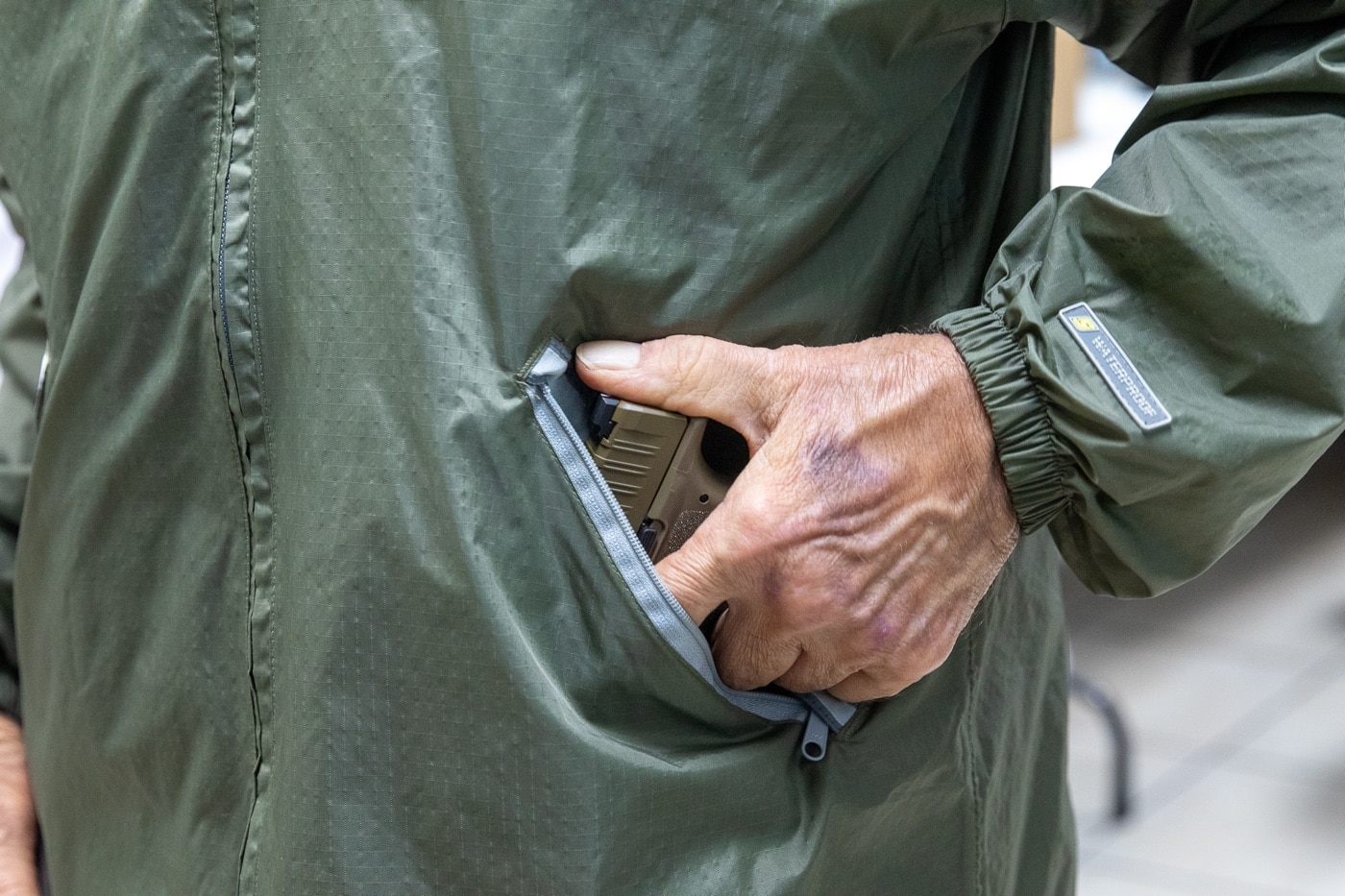
Some are designed with a lip to catch on the front top edge of the pocket to allow the pistol to clear, and some are designed for the lip to catch on the rear edge of the pocket, which requires you to start tipping the muzzle forward earlier in the draw. You want to do lots of practice with YOUR combination of gun and pocket holster, unloaded, in dry fire before pocket carrying a loaded gun!
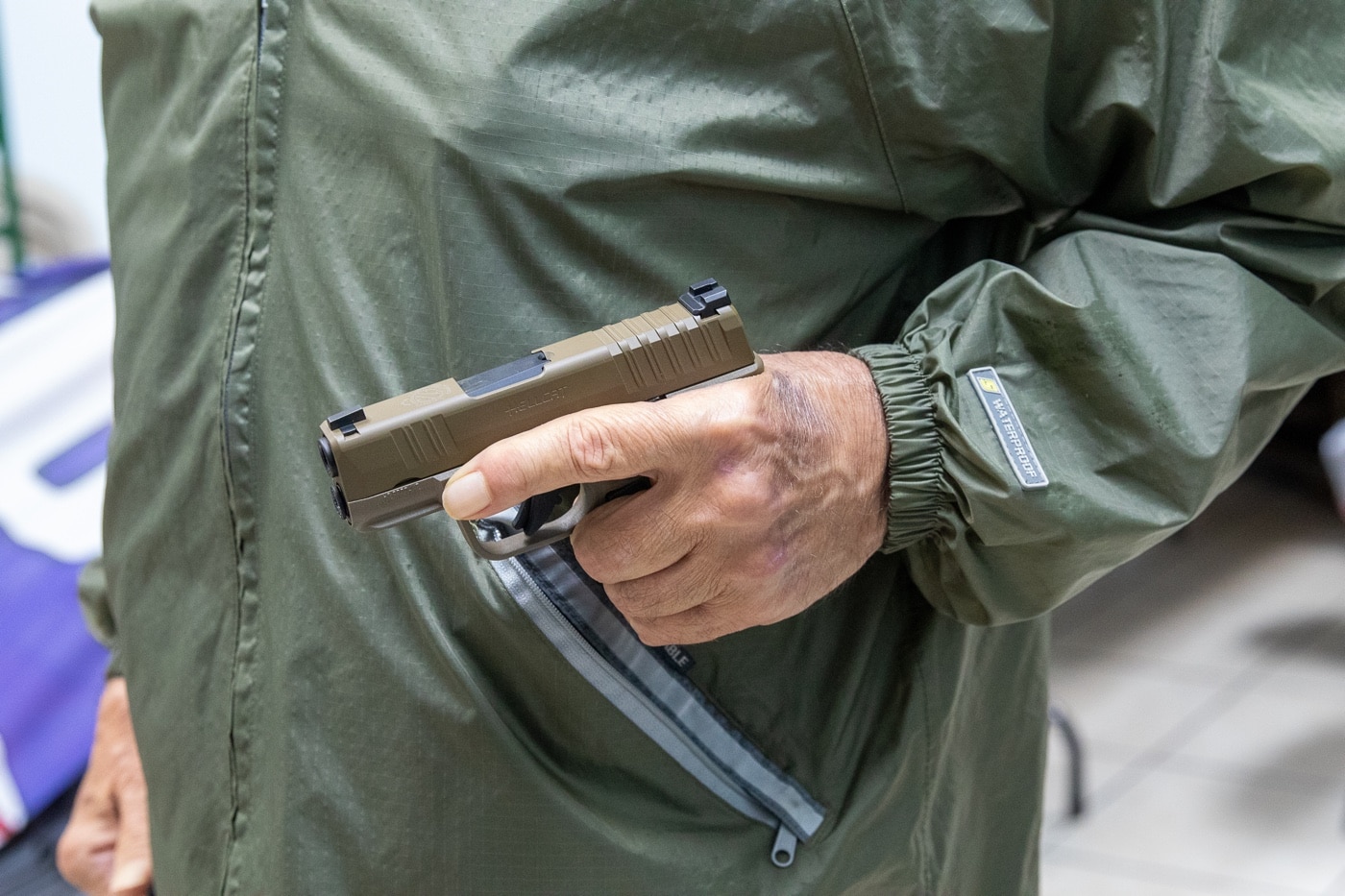
A lot depends on what pocket you’re carrying in! A side trouser pocket works best for many of us, allowing for the hand to be already on the gun in an iffy situation without tipping anyone to that fact, since it looks so casual and commonplace. Hip pocket? A hand there is a little less common and thus more obvious, and with many pants you end up sitting uncomfortably on the gun. Cargo pockets in cargo pants? Unless you have orangutan arms, you’ll look like Quasimodo standing or walking with the hand in that pocket, and it will bump annoyingly against the side of your leg with every step.
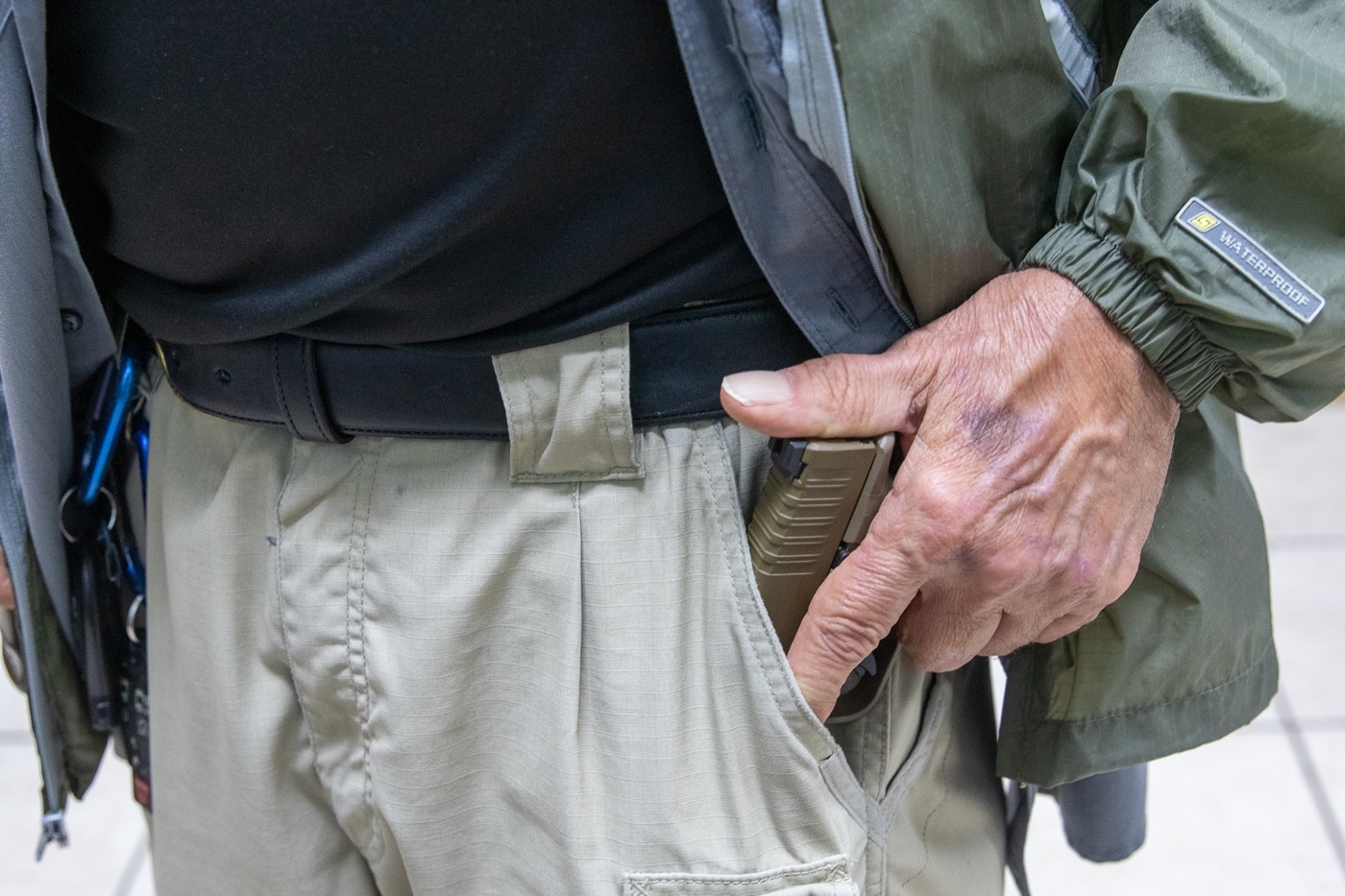
Coat pockets? They make huge sense in very cold weather. Practice the draw extensively with an empty gun, though: if the coat isn’t closed, the garment will want to ride with the gun when you try to pull the gun out, slowing the draw. Also, you have an issue regarding control of the firearm if you need to take off your jacket.
Conclusion
Pocket carry has a definite place among your concealed carry options…but it’s critical to know its pros and cons, and how to play to its strengths and minimize its weaknesses.
Editor’s Note: Please be sure to check out The Armory Life Forum, where you can comment about our daily articles, as well as just talk guns and gear. Click the “Go To Forum Thread” link below to jump in and discuss this article and much more!
Join the Discussion
Featured in this article
Continue Reading
Did you enjoy this article?

 385
385




